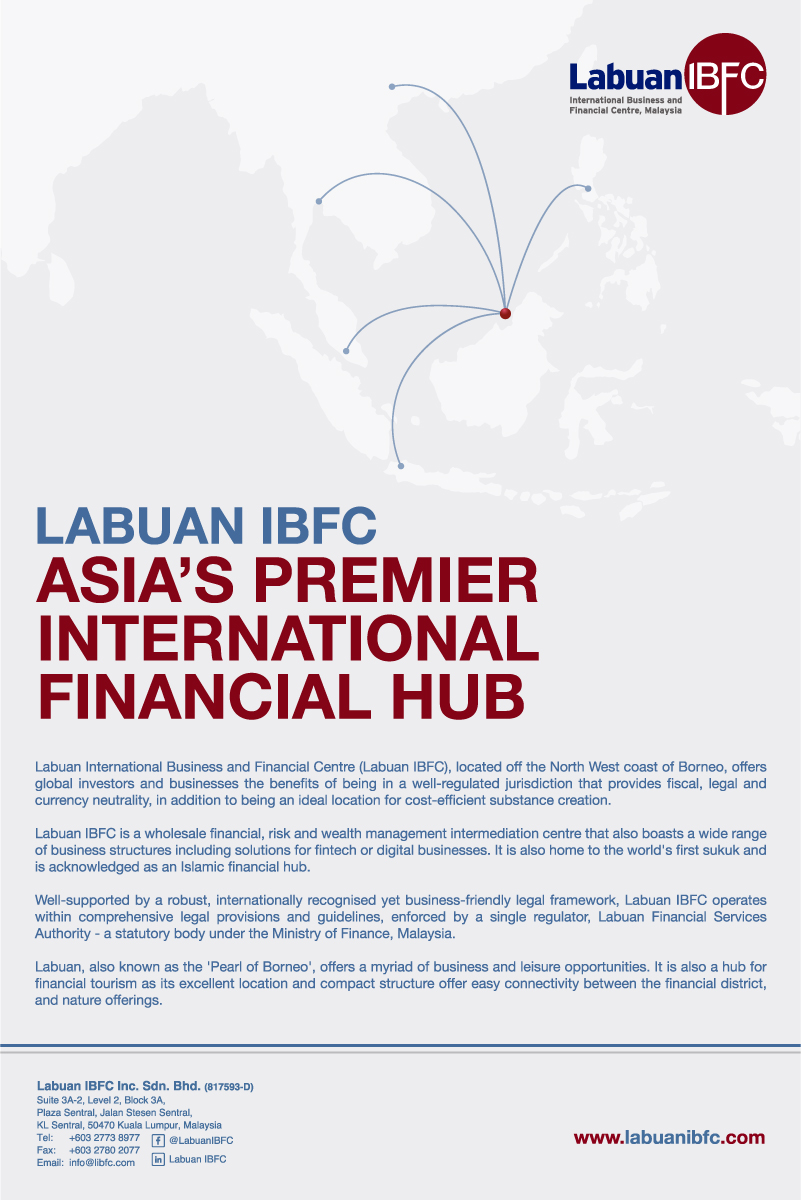Bermuda welcomed over 800 delegates for the 14th annual captive conference, which boasted a refreshed feel and focused on the power of diversity
Bermuda welcomed over 800 delegates for the 14th annual captive conference, which boasted a refreshed feel and focused on the power of diversity
The Fairmont Southampton welcomed over 800 delegates between the 11 and 13 June for the 2018 Bermuda Captive Conference, as members of the captive industry from around the world descended on the island for its 14th annual captive conference.
Before the event conference chair Mike Parrish told me that in his first year as chair he wanted to refresh and update the event’s look and feel through alterations to the conference layout and schedule, a change to the brand, and an increased use of technology–including the use of an app. According to Parrish, these changes were successful and well received.
“The delegate response has been overwhelmingly positive,” he explained, “everyone felt it was a big improvement and greatly increased networking opportunities.”
The refreshed and updated conference had a forward-thinking theme that was focused around the issue of diversity, not just diversity of talent and gender, but also of culture and of risk.
The keynote speaker Derreck Kayongo, a business visionary and humanitarian, emphasised the importance of diversity not just for the sake of equality but for its power in business. According to Kayongo, diversity in the western corporate marketplace was as powerful as diversity in the African savannah.
The power of diversity
In his rousing industry keynote speech, John Reiss, CFO of Hamilton Insurance Group, reiterated Kayongo’s statement about the power of diversity. Using statistics from the McKinsey report on diversity and inclusion, Reiss indicated that there were significant financial incentives to becoming a more diverse and inclusive company.
He said: “There is more than enough of a financial incentive to get this done.”
“Organisations that have embraced diversity and inclusion, and actively focus on it, are better managed and produce superior results because of it. McKinsey just updated their seminal report on diversity and inclusion, it adds to the litany of proof that companies that embed diversity and inclusion in their business are more profitable.”
Reiss called for the captive industry to be brave and make a collective difference on diversity.
He said that finding a solution to the “devilishly complex issue” would be a “marathon and not a sprint” and challenged delegates to try and make a difference.
He stated: “As our children grow up into adulthood, the environment needs to be far more diverse and entirely inclusive. In other words, far healthier. It needs more and more of us to work on this, I want all of you to go home and open the dialogue.”
“Go back to your companies and be brave, talk to your CEOs and your boards.”
“Make sure your boards know this is an important topic, I think collectively we will make a difference.”
According to Reiss, the industry is not making enough progress and in some cases was actually losing ground.
He added: “I believe we are at an inflexion point, attitudes are getting better but the current rate of progress is not good enough. More and more organisations are realising that they must work harder on diversity and inclusion, and frankly be much more fearless in changing the status quo.”
Reiss’ belief that more work was needed to ensure a better gender balance in the captive industry was echoed by Laurie Forkas, senior assistant general counsel at Marsh and McLennan.
Speaking at the ‘Women in the Captive Industry: Empowering Industry Awareness’ session, Forkas quoted the World Economic Forum’s 2017 report on the global gender gap which notes that it will take 217 years to close the economic global gender gap.
“That is astonishing,” commented Forkas. “In the last four years the number has risen, so there is lots of work to be done.”
She added that those at the top need to understand why women or underrepresented employees are leaving and understand their needs.
She explained: “They need to have the courage to change things and they need certain policies and practices in place to help pay equity and advancement in careers. There need to be policies on how to move people forward.”
Another of the panelists, Sophia Greaves, director at Conyers Dill and Pearman, said it was not just enough for companies to “have the diversity box checked”.
Greaves stated: “It is one thing to check a box, but it is another to have diversity of thought.”
“It is very important to have people that are genuinely thinking about things differently.”
She added: “One of the many challenges young women face is this pressure to have to fit a certain mould and I think that is hugely defeatist.”
Moderating the ‘Captive Owner Round Table Discussion’, Grainne Richmond, vice president of Dyna Management Services, emphasised the need for organisations to address their own policy on diversity first.
“Diversity starts at your own front door,” said Richmond. “You need to look at your own organisation and how you are approaching diversity.”
“When you stop and look at yourselves, it is fine for the reporters in the papers to focus on companies that aren’t diverse, but unless you’re addressing it at your own front door, it is not going to get any better.”
According to Richmond, the surprise felt by millennials over the recent gender pay gap figures shows things are moving in the right direction.
She said: “I was surprised by the huge gender pay gap, and so were the millennials in the office which I think is a good message.”
Breaking down barriers
Millennials and their potential impact on the captive market was another common talking point at the conference. Teniko Eve, captive associate at Marsh, described the barriers to entry that the captive industry has and said there was no easy fix.
He explained: “There are a lack of graduate positions readily available, most of the positions are for account managers, which mostly require three to five years of industry experience.”
“Furthermore, there are less insurance or risk management roles in captives today than 20 years ago.”
“It is definitely something we are looking at but it is a hard fix because if the jobs aren’t there, they aren’t there, no small company is just going to create a risk manager or insurance role if they don’t need it.”
“That is a problem that we see and we’ve been trying to think how to address it but it is very difficult to address something like that.”
Bermuda
As with every year, the conference was a celebration of Bermuda’s captive industry, which boasts 740 captives and generates over $55 billion in annual gross written premiums. Bermuda insurance veteran Brian Hall, a legend of the captive industry, was awarded the Fred Reiss Lifetime Achievement award and 11 captives were admitted into the hall of fame after completing 25 years of business in the island’s market.
What separates the island as a captive domicile, according to panelists at the ‘Captive Owner Roundtable Discussion’, was its “human capital”.
Scott Reynolds, president and CEO of Member Insurance, said: “The attraction of Bermuda is not the beautiful scenery, it is the people and the infrastructure. I think Bermuda is unlike any other jurisdiction because it is blessed with tonnes of resources, I know that there is ongoing threats that come and go but I don’t see any major change in that.”
Dageria Morgan, treasury manager at Linamar Corporation, echoed Reynolds comments on the domicile. She said: “We came to the conference last year and were just blown away, so impressed by the human capital and the infrastructure. We saw the domicile as a one-stop shop where we could get everything we needed.”
Another of the panellists, global director of risk and insurance at General Motors, Alan Gier added: “The capability of the island differentiates it, anything you need to do can be done here by highly capable people.”
“I’ve looked at other domiciles and I don’t see the infrastructure Bermuda provides.”
Speaking on a panel dedicated to healthcare captives, Adam Bates, vice president and pricing actuary at Allied World Assurance Company, stated that Bermuda’s strong relationships with its clients would help it navigate through the challenges of a tough pricing market for healthcare captives.
Bates said: “Heightened claim severity is impacting pricing. We are seeing clients start to take higher retentions and/or pay higher premiums and that also speaks to where we are in the insurance cycle. I don’t think the current pricing is sustainable. I don’t know what the right answer is but I don’t think we are there today.”
He added: “One of the benefits of the Bermuda marketplace is the longevity of relationships with clients, people have been coming out here for a lot of years and I think those relationships are going to help us navigate through these challenges.”
“We can discuss with clients about where the market is, where pricing is at and what needs to change so things are sustainable for the long term.”
Sunny outlook
Parrish said he sees the conference as reflecting the domicile’s reputation as a leader and innovator, and the ever-evolving nature of the captive industry.
A large part of this was through the conference agenda, and Parrish celebrated the wealth of talent that was on display over the course of the three days.
He said: “From my perspective, the highlight was the strength of the agenda and a huge amount of credit should go to our Agenda Committee for gathering such an array of world-class intellectual capital for our many industry sessions.”
“With 806 attendees, this was one of the best attended conferences on record. It was particularly pleasing to see more captive owners attending, which means we must be offering topical and relevant content.”
“All-in-all, we set a high bar, but I am confident we can rise to the challenge and make the Bermuda Captive Conference 2019 an even greater success for our sponsors and delegates.”





